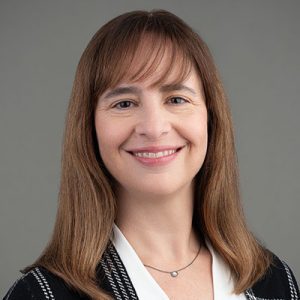
What happens during a conversation between a patient with cancer and their surgeon when the patient is interested in a procedure for which the surgeon knows there is little value? This is the very question that Division of Surgical Oncology Associate Professor Dr. Heather Neuman plans to answer with a new two-year, $412,000 Exploratory/Developmental Research Grant Award (R21) from the National Cancer Institute.
According to Neuman, there are two specific breast cancer procedures that have limited clinical benefit and could potentially cause harm: sentinel lymph node biopsies (SLN) for women who are 70+ years old and contralateral prophylactic mastectomy (CPM, a surgery to remove the healthy breast in a person who has had the other breast with cancer removed).
“These procedures have no impact on overall survival and can in fact have a negative impact on a patient’s psychosocial, physical, and financial outcomes, yet many patients request them to minimize future cancer risk and reduce anxiety,” said Neuman. “How patients and their surgeons are having conversations about these low-value procedures could tell us a lot about how we can better support patient decision-making while also helping patients understand why these operations may not be right for them.”
Neuman and her team plan to analyze data from 594 previously audio-recorded initial consultation appointments between patients newly diagnosed with breast cancer and their surgeon. The research team plans to evaluate the extent to which surgeons use elements of shared decision-making in these conversations and how this impacts SLN or CPM decisions. They also plan to look for patterns in these interactions that may be associated with decisions to not perform SLM or CPM. Finally, they will develop a low-value care conversation tool that surgeons can use to guide discussions with patients, with the goal of testing the effectiveness of the conversation guide in a future study.
“Conversations about low-value procedures can be really challenging,” explained Neuman. “Learning more about them and ultimately improving how they can successfully happen has the potential to reduce both patient harm and healthcare costs for the more than 1.6 million people who are diagnosed with cancer every year.”